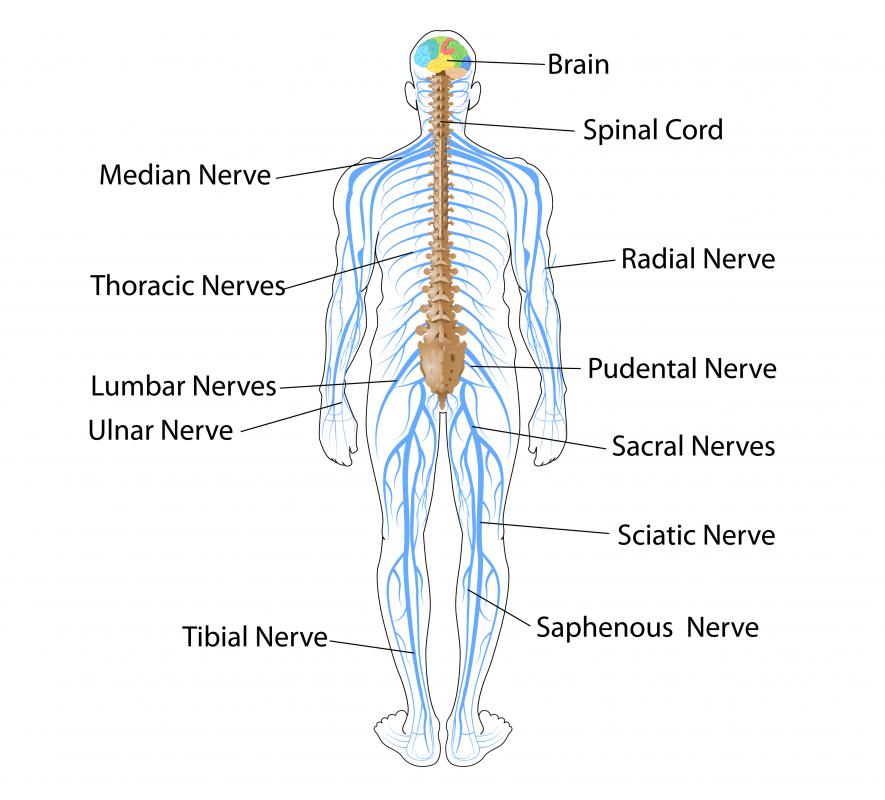At WiseGEEK, we're committed to delivering accurate, trustworthy information. Our expert-authored content is rigorously fact-checked and sourced from credible authorities. Discover how we uphold the highest standards in providing you with reliable knowledge.
What Are the Different Types of Nervous System Infections?
There are many different types of nervous system infections. These infections are classified based on the location of the infection and whether it is in the central or peripheral nervous system, such as meningitis and encephalitis. The types of infections are also differentiated by their cause, such as cerebral toxoplasmosis.
Nervous system infections have different symptoms depending on the type of infection and where it is located. Symptoms indicating that the infection is affecting the central nervous system include weakness, seizures, and a change in mental health. Burning and tingling sensations in the body, numbness, and heart and lung problems are signs that the infection is affecting the peripheral nervous system.

Infections that primarily affect the meninges are classified as meningitis. The meninges make up the tissue covering the central nervous system, which consists of the brain and spinal cord. Meningitis can be caused by a virus or bacteria. A viral meningitis infection typically heals on its own, whereas bacterial infections are significantly more severe. Antibiotics are the most effective treatment for bacterial meningitis, but the bacteria must be identified before the infection progresses too far.

Nervous system infections that are concentrated on the brain itself are called encephalitis. Encephalitis literally means inflammation of the brain, which is almost always caused by infection. Like meningitis, most cases of encephalitis are very mild and may even go unnoticed, but some infections are life threatening. Mild cases of encephalitis produce flu-like symptoms, whereas serious infections may cause hallucinations, seizures, and partial paralysis.

Progressive multifocal leukencephaly (PML) is one of the rarest types of nervous system infections. PML often causes dementia, which describes a dysfunction of the cognitive process that results in loss of memory, confusion, and poor judgment. This type of nervous system infection affects everyone slightly differently, depending on which part of the brain is affected. Facial weakness, loss of coordination, and problems with vision are some common symptoms.
The most common nervous system infection affecting HIV patients is called cerebral toxoplasmosis. Most people in the United States have been exposed to the toxoplasma gondii protozoa, which causes this infection, but don't present symptoms unless their immune system is compromised. This type of central nervous system infection causes brain abscesses, which are an accumulation of pus and tissue damage. It additionally may lead to speech problems, seizures, and confusion.
AS FEATURED ON:
AS FEATURED ON:













Discuss this Article
Post your comments